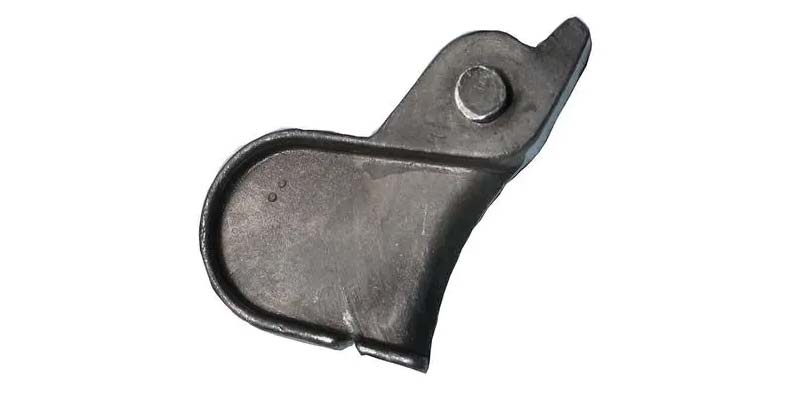- Contact Innally, Let you purchase forgings in China more favorable prices, products more assured!
- Hotline:+(86)15038323776 Email:innally@innally.com
Performance advantages and application fields of aluminum alloy forgings
- Category: Aluminium alloy forging, Thermal forging
- |
- Date: 09/01/2024
aluminum alloy forgings have been widely used in various fields because of their performance advantages such as light weight, high strength, good plasticity and toughness, and corrosion resistance.
Product Details
As an important metal material, aluminum alloy forgings have been widely used in many fields. It has a number of unique performance benefits that make it an ideal choice in many applications. This paper will focus on the performance advantages and applications of aluminum alloy forgings.
First, the performance advantages of aluminum alloy forgings
Lightweight: Aluminum alloy has a lower density and has better lightweight properties compared to other metals. The use of aluminum forgings can significantly reduce product weight, thereby improving fuel economy, reducing energy consumption and emissions.
High strength: Aluminum alloy forgings after heat treatment and processing strengthening, has good mechanical properties, can withstand high pressure and bending stress. This makes aluminum forgings excellent in terms of load bearing capacity and suitable for a variety of structural and mechanical parts.
Good plasticity and toughness: Aluminum alloy forgings have good plasticity in the processing process, and can be deformed and bent to adapt to the needs of various complex shapes. At the same time, aluminum alloy forgings also have good toughness and can maintain integrity when impacted.

Good corrosion resistance: the surface of aluminum alloy is easy to form a dense oxide film, which can effectively resist corrosion. This makes aluminum alloy forgings have a long service life under various environmental conditions.
Easy processing and welding: Aluminum alloy forgings are easy to cut, drill, bend and weld, which reduces the difficulty of manufacturing and improves production efficiency.
Second, the application of aluminum alloy forgings
Automobile manufacturing: Aluminum alloy forgings are widely used in the automobile manufacturing field, mainly for engines, chassis, body and interior parts. The lightweight performance of aluminum alloys helps to improve fuel economy and reduce emissions, while its high strength and corrosion resistance also meet the high requirements of automotive parts.
Aerospace: Aluminum alloy forgings occupy an important position in the aerospace field. Due to the high demand for material properties, aluminum alloy forgings are widely used in aircraft, rockets and satellites and other aircraft structural parts and engine components.
Construction: Aluminum alloy forgings are widely used in the construction industry because of their high strength, lightweight and beautiful and durable characteristics. It can be used to manufacture building components such as doors, Windows, curtain walls, supports and stairs.
Electronics: Aluminum alloy forgings are widely used in the electronics industry, mainly for the manufacture of components such as electronic product housings, connectors, radiators and shielding covers. Rail transit: The application of aluminum alloy forgings in the field of rail transit mainly includes the manufacture of vehicle structures and parts, such as car bodies, seats, electrical boxes and so on.
Other machinery manufacturing: In addition to the above application areas, aluminum alloy forgings are also widely used in other machinery manufacturing industries, such as petrochemical, shipbuilding, medical equipment and so on.
In summary, aluminum alloy forgings have been widely used in various fields because of their performance advantages such as light weight, high strength, good plasticity and toughness, and corrosion resistance. With the continuous development of science and technology, the demand for aluminum alloy forgings will continue to grow, and its application prospects are very broad.
nannan
INNALLY mainly provides you with various types of cast and forged parts products. Welcome your inquiries! innally@innally.com
Related Products
Search
Forging center
- Steel forgings
- Aluminium alloy forging
- Titanium alloy forging
- Stainless steel forging
- Copper forging
- Automotive forgings
- Locomotive forging
- Bicycle forgings
- Motorcycle forging
- Rigging and fasteners
- Bearing forging
- Electric power fittings
- Marine forging
- Mechanical forgings for metalworking
- Mining machinery forgings
- Marine engineering forgings
- Construction machinery forgings
Popular product

© 2025. All Rights Reserved.






